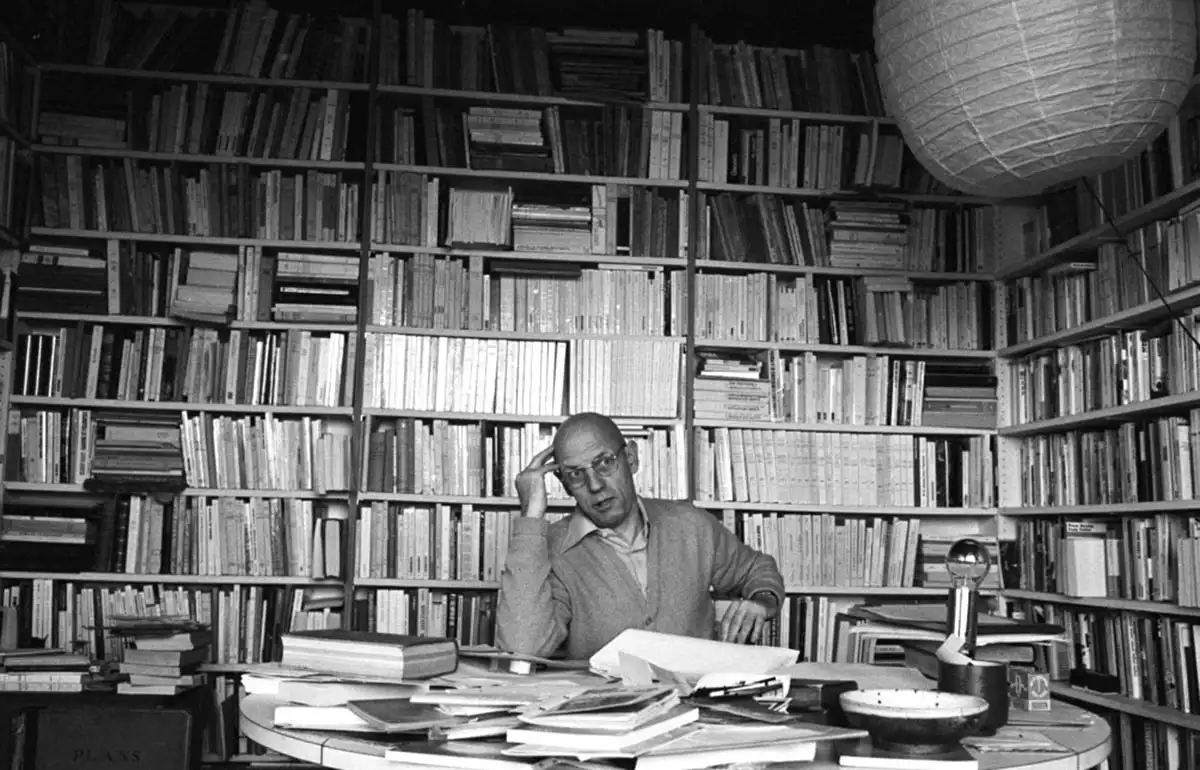
Michel Foucault was a renowned French philosopher, social theorist, and historian of ideas whose work has had a profound impact on numerous academic disciplines, including philosophy, sociology, and cultural studies. His insights into power, knowledge, and the construction of reality have challenged prevailing paradigms and influenced generations of thinkers.
In this article, we explore 20 mind-blowing facts about Michel Foucault that shed light on his life, ideas, and contributions. From his controversial views on sexuality and power to his formative experiences as a prisoner, Foucault’s life was as fascinating as his intellectual work. By delving into these facts, we gain a deeper appreciation for the complexities of Foucault’s thinking and the lasting influence he continues to have in shaping our understanding of society, politics, and human nature.
Key Takeaways:
- Michel Foucault was a groundbreaking French philosopher who challenged traditional ideas about power, knowledge, and social institutions, inspiring critical thinking and scholarly inquiry worldwide.
- Foucault’s work on sexuality, power dynamics, and social control continues to influence diverse academic fields and social movements, sparking activism and reshaping intellectual discourse.
Michel Foucault was a French philosopher, social theorist, and historian.
Michel Foucault, born on October 15, 1926, in Poitiers, France, was renowned for his groundbreaking contributions to various disciplines, including philosophy, sociology, and cultural studies. His influential works continue to shape academic discourse to this day.
Foucault’s theories focused on power, knowledge, and social institutions.
Foucault believed that power was not just held by individuals or governments but was instead dispersed throughout society and embedded in various social institutions and practices. His work explored the relationship between power, knowledge, and the construction of social realities.
Foucault’s most famous work is “Madness and Civilization: A History of Insanity in the Age of Reason.”
In this seminal work, Foucault examined society’s treatment of the mentally ill throughout history and how the categorization of madness has changed over time. He argued that the historical treatment of madness reflected broader social and cultural attitudes.
Foucault coined the term “panopticism” to describe a form of power.
In his book “Discipline and Punish: The Birth of the Prison,” Foucault introduced the concept of panopticism. It refers to a system of social control where individuals are constantly monitored, leading to self-regulation and conformity to societal norms.
Foucault was openly gay and explored sexuality in his work.
Foucault’s writing on sexuality, particularly his book “The History of Sexuality,” challenged societal norms and the regulation of sexual behavior. He argued that sexuality is not a fixed entity but rather a historically constructed concept.
Foucault was a vocal critic of the psychiatric system.
Throughout his career, Foucault questioned the authority and practices of psychiatry, arguing that it was often used as a tool of social control rather than for genuine therapeutic purposes. His critique paved the way for the development of anti-psychiatry movements.
Foucault’s work on power dynamics influenced poststructuralist and postmodernist thought.
Foucault’s ideas on power, discourse, and the construction of truth have had a profound impact on poststructuralism and postmodernism. His work challenged traditional notions of power and authority, emphasizing the role of language and discourse in shaping social reality.
Foucault taught at prestigious universities, including the Collège de France.
Foucault held various academic positions throughout his career, including a distinguished tenure at the Collège de France. His lectures and seminars attracted students from around the world who were eager to engage with his challenging and thought-provoking ideas.
Foucault’s concept of “biopower” examines the control and regulation of populations.
In his later work, Foucault explored the concept of biopower, which refers to the mechanisms and techniques used by governments to manage and regulate populations. He argued that power operates not only at the individual level but also on a broader societal scale.
Foucault’s work has been criticized for its lack of practical solutions.
While Foucault’s theories have been highly influential, some critics argue that his work offers little in terms of practical solutions or concrete proposals for social change. However, his provocative ideas continue to inspire critical thinking and intellectual debate.
Foucault’s writing style is known for its complexity and depth.
Foucault’s dense and intricate prose style can make his works challenging to navigate for some readers. However, his complex ideas demand careful attention and reflection to fully grasp the depth of his arguments.
Foucault’s work has influenced a wide range of disciplines.
From philosophy and sociology to psychology and cultural studies, Foucault’s ideas have had a profound impact on numerous academic fields. His theories continue to be widely studied and debated within the social sciences and humanities.
Foucault’s theories on power have inspired activism and social movements.
Foucault’s analysis of power dynamics and social institutions has resonated with activists seeking to challenge and dismantle oppressive systems. His ideas have been influential in feminist, LGBTQ+ rights, and anti-racist movements.
Foucault’s emphasis on discourse paved the way for critical discourse analysis.
Foucault’s concept of discourse, which refers to the systems of knowledge and power that shape how we understand the world, has been instrumental in the development of critical discourse analysis. This approach examines how language and discourse shape social reality and maintain power imbalances.
Foucault’s work blurred the boundaries between philosophy and social science.
Foucault’s interdisciplinary approach challenged the traditional boundaries between philosophy and social science. His work drew on insights from a wide range of disciplines, including history, anthropology, and psychology.
Foucault’s ideas have been influential in feminist theory.
Foucault’s exploration of power and the mechanisms of social control have informed feminist theorists’ understanding of gender and patriarchy. His work has contributed to the development of intersectional feminist thought.
Foucault was a prolific writer, publishing numerous books and essays.
During his career, Foucault authored many influential works, including “The Archaeology of Knowledge,” “Discipline and Punish,” and “The Birth of Biopolitics.” His extensive body of writing continues to be studied and analyzed by scholars worldwide.
Foucault’s ideas challenged traditional conceptions of history.
Foucault’s approach to history emphasized the importance of examining power structures and discourses within specific historical contexts. He argued that history should not be seen as a linear progression but rather as a complex interplay of power relations.
Foucault’s work on sexuality has been influential in queer theory.
Foucault’s exploration of the social construction of sexuality and its relationship to power dynamics has had a significant impact on queer theory. His ideas have challenged normative understandings of sexuality and advocated for greater acceptance of diverse sexual identities.
Foucault’s legacy continues to provoke intellectual debate and exploration.
The impact of Foucault’s theories on power, knowledge, and social institutions endures in academia and beyond. His radical questioning of established norms and his emphasis on the underlying power dynamics of society continue to inspire critical thinking and scholarly inquiry.
Conclusion
In conclusion, Michel Foucault was a highly influential figure in the field of philosophy and social sciences. His unique perspectives and theories challenged conventional understanding and opened up new possibilities for critical thought. Through his works, Foucault shed light on the power dynamics within society, the construction of knowledge, and the ways in which institutions shape individual behavior.By examining various institutions such as prisons, hospitals, and schools, Foucault emphasized the complex relationships between power, discipline, and control. His ideas continue to provoke debate and inspire scholars across different disciplines.Whether you agree with his theories or not, there is no denying the impact that Michel Foucault has had on modern intellectual discourse. His ideas have shaped our understanding of power, knowledge, and social institutions, and continue to influence critical thinking in fields such as sociology, philosophy, and cultural studies.
FAQs
1. Who was Michel Foucault?
Michel Foucault was a French philosopher and social theorist. He is best known for his works on power, knowledge, and the ways in which institutions shape society and individual behavior.
2. What are some of Michel Foucault’s notable works?
Some of Michel Foucault’s notable works include “Discipline and Punish,” “The History of Sexuality,” and “Madness and Civilization.” These works explore the relationship between power, knowledge, and social institutions.
3. What are some key concepts in Michel Foucault’s theories?
Some key concepts in Foucault’s theories include power relations, disciplinary mechanisms, biopolitics, and the construction of knowledge. He also emphasized the idea of the “panopticon,” a metaphorical concept of constant surveillance and control.
4. How has Michel Foucault influenced modern critical thought?
Michel Foucault’s ideas have had a profound impact on modern critical thought. His theories have influenced disciplines such as sociology, philosophy, anthropology, and cultural studies, by offering new ways of understanding power dynamics, social institutions, and the construction of knowledge.
5. What is the legacy of Michel Foucault?
The legacy of Michel Foucault lies in his revolutionary ideas and contributions to critical theory. His works continue to be studied and debated, providing insights into the mechanisms of power, the complexities of society, and the ways in which individuals are shaped by institutions.
Was this page helpful?
Our commitment to delivering trustworthy and engaging content is at the heart of what we do. Each fact on our site is contributed by real users like you, bringing a wealth of diverse insights and information. To ensure the highest standards of accuracy and reliability, our dedicated editors meticulously review each submission. This process guarantees that the facts we share are not only fascinating but also credible. Trust in our commitment to quality and authenticity as you explore and learn with us.


